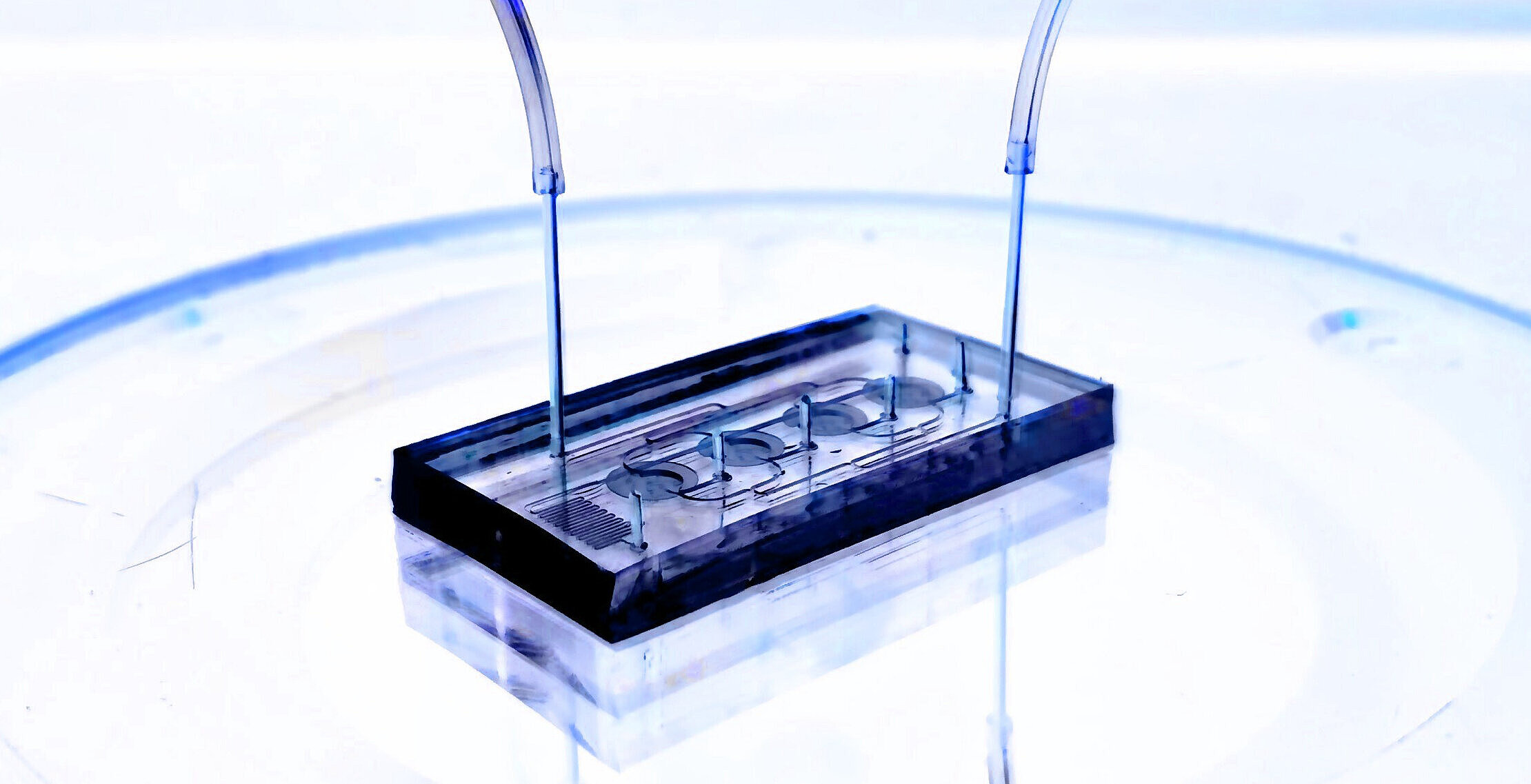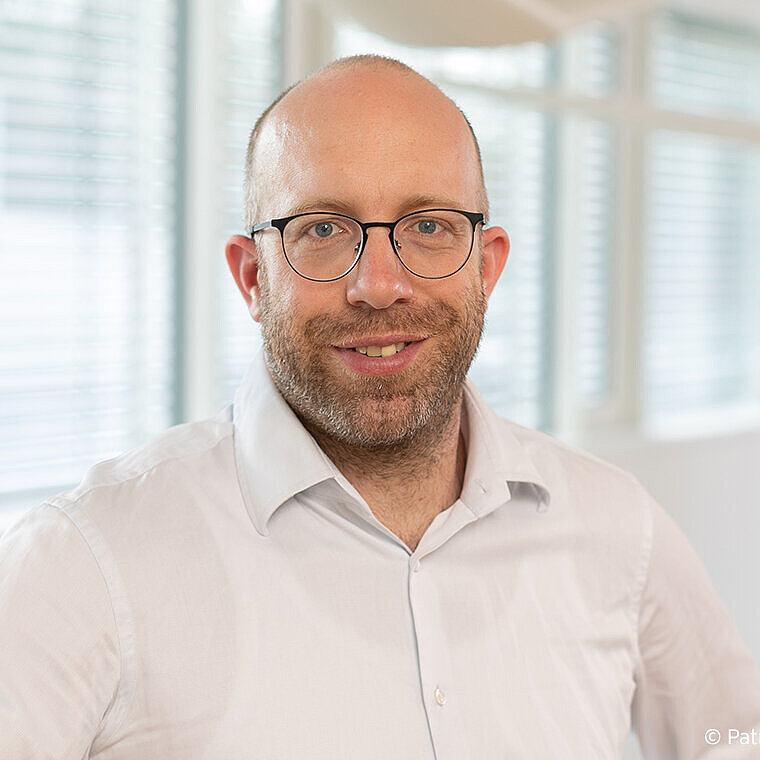Prof. Dr. Peter Loskill receives the Herbert Stiller Award for his project: Breast Cancer on Chip
Every two years, the association Ärzte gegen Tierversuche e.V. (Doctors Against Animal Experiments) awards the Herbert Stiller Prize for innovative scientific work that uses non-animal, human-based methods to research and treat human diseases.
The award's namesake, Dr. Herbert Stiller, was a specialist in neurology, psychiatry and psychotherapy, and co-founder of the association Ärzte gegen Tierversuche e.V. (Doctors Against Animal Experiments). The association, whose motto is "Medical progress is important - animal experiments are the wrong way!", has been campaigning for animal-free research since 1979 and established the Herbert Stiller Prize in 1990. The prize, which is endowed with 20,000 euros, is awarded to scientists who dedicate themselves to non-animal research in the field of medicine/biomedicine.
The submission criteria for funding planned research must not include animal testing, nor may animal material be used. The project should address a new, innovative topic or take a new methodological approach. The goal of the award is to advance modern research methods, such as cause research and prevention of disease with novel technologies such as organ-on-chip (OoC) systems.
About the winner 2023
Peter Loskill received his PhD in physics from Saarland University in 2012 and subsequently conducted postdoctoral research at the University of California at Berkeley. In 2015, he was recognized by Technology Review as one of the "Innovators under 35 Germany" and was selected for the Fraunhofer ATTRACT funding program.
In 2016 he founded the µOrgano-Lab, whose interdisciplinary research combines approaches from engineering, biology, physics, and medicine to develop novel microphysiological tissue models that recapitulate complex human biology in vitro and can be applied to answer biomedical, toxicological, or pharmaceutical questions, among others. In May 2021, he was appointed bridge professor of OoC systems between the NMI Naturwissenschaftlichen und Medizinischen Institut an der Universität Tübingen in Reutlingen and the Medizinischen Fakultät der Eberhard Karls Universität Tübingen and at the same time took over the management of the 3R-Centers Tübingen. Professor Loskill is also committed to the further development and adaptation of animal replacement methods and the promotion of young scientists in this field at the international level. To this end, he initiated and coordinated, for example, the Marie Skłodowska-Curie Interdisciplinary Training Network for the Advancement of Organ-on-a-Chip Technology in Europe (MSCA-ITN-EUROoC) from 2018 to 2023. In 2018, he also founded the European-Organ-on-Chip-Society (EUROoCS), which he chaired from 2021 to 2023. This year, he also became a member of the board of the International MPS Society (iMPSS) and acted as host of the MPS World Summit 2023 in Berlin with more than 1300 participants.
What actually is an organ-on-chip?
In a nutshell, an OoC is a replica of functional units of an organ, which allows to study human biology and diseases outside the human body. By combining approaches from microsystems engineering, materials science, tissue engineering, and cell biology, human cells are created a micro-environment in which they feel at home, as if they were in the tissue composite in the body. In recent years, OoC systems have become a promising alternative to animal testing and conventional cell assays.
How is research conducted at the 3R Center?
The 3R-Center, whose foundation is supported by the Ministry of Economics, Labor and Tourism and the Ministry of Science, Research and the Arts of the State of Baden-Württemberg, is one of the four competence centers of the NMI.
The aim of the 3R Center is to promote alternative and complementary methods to animal experiments in terms of education, further education and training, public awareness and infrastructure. The aim is to enable researchers to answer their scientific questions using modern in vitro models without having to resort to the use of animals.
"If we want to efficiently replace animal experiments in the long term, we need to provide our colleagues with human tissue-based models that better replicate human physiology and provide results that are transferable to humans," said Professor Dr. Peter Loskill.
In the research branch of the 3R-Center, the µOrgano Lab, an international team of engineers, physicists, biologists, pharmacists and physicians is working on the development of OoC systems and enabling technologies. The focus is on the application of OoC models in basic research, drug development and pharmacological research, personalized medicine, consumer protection and toxicology.
What exactly is the award-winning project about?
The submitted project is about models for the development of new therapeutic options for cancer treatment. This is still mainly based on animal models or population-based studies. Novel in vitro models, such as tumor organoids, promise significant progress in this regard; however, organoid cultures are still largely based on the use of animal-derived extracellular matrices. The goal of the submitted interdisciplinary project is to generate and characterize a completely animal-free microphysiological breast cancer on-chip model that integrates human tumor organoids in a physiological microenvironment.
The prize money will be used for the development of the novel, human breast cancer OoC.
"Professor Loskill's work not only expands the current state of research and technology in the field of tissue engineering and, in particular, human-based in vitro test systems. Professor Loskill and his team are also making a significant contribution to translating scientific findings into standardizable methods that can then be taken up directly by users, for example in industry, to reduce or replace the use of animal models," commented NMI Director Professor Dr. Katja Schenke-Layland.

Date:
05.10.2023Categories:
PressContact







